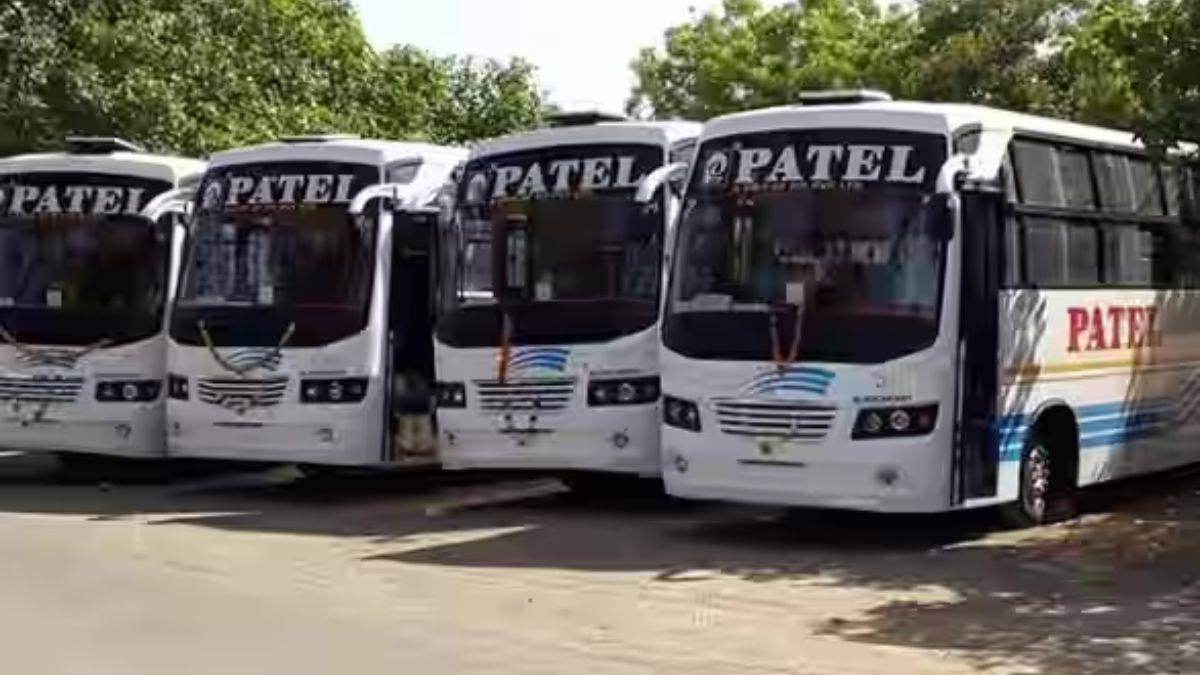Gujarat High Court Upholds Ban on Private Tourist Buses in Ahmedabad
The petitioners argued in the Gujarat High Court stating the private buses contribute minimally to accidents (0.9%) compared to two-wheelers (60-70%)

Advertisement
Ahmedabad : The Gujarat High Court has upheld a notification issued by the Ahmedabad City Police Commissioner in 2022 restricting the entry of private tourist buses into the city limits from 8 am to 10 pm. This decision comes after a legal battle between the Ahmedabad City Police and private travel companies who challenged the notification.
The 2022 notification aimed to address three key concerns: traffic congestion, accidents, and pollution. Private travel companies argued against the ban, claiming it unfairly targeted their industry. They pointed to a previous 2004 notification that designated specific routes and parking spaces for private buses.
The petitioners argued that private buses contribute minimally to accidents (0.9%) compared to two-wheelers (60-70%). They also highlighted that private buses only account for 5.9% of traffic. Additionally, they emphasized the lack of data showing a worsening traffic situation since the 2004 notification.
The court, however, acknowledged the space constraints caused by large private buses and the overall burden on city infrastructure. They highlighted the lack of parking spaces, even near the High Court, as a testament to the city’s congestion issues.
The court emphasized the need to regulate traffic flow, stating, “Vehicles cannot be stopped on the road, but it can be regulated.” While acknowledging the right of private businesses to operate, the court found the ban justified in balancing public interest against private interests.
The court further argued that private buses could operate from designated stops outside the city and connect passengers to public transport within the city limits. They emphasized the temporary nature of permits granted to marriage buses, contrasting them with the daily operations of private travel companies.
The petitioners pointed out that private buses for marriages are allowed to enter the city, highlighting an inconsistency. However, the court distinguished these cases due to the limited frequency and special permits involved.
The argument that public buses contribute to a higher percentage of accidents (70%) was countered by the court, acknowledging the necessity of public transport despite its drawbacks. The court’s concern was the additional strain on infrastructure if these buses were to be restricted as well.
The court ultimately rejected the petition, concluding that private buses are not entitled to enter the city during peak hours. They highlighted the inconvenience caused by private buses dropping passengers outside the city and the burden it places on public transport.
Advertisement

